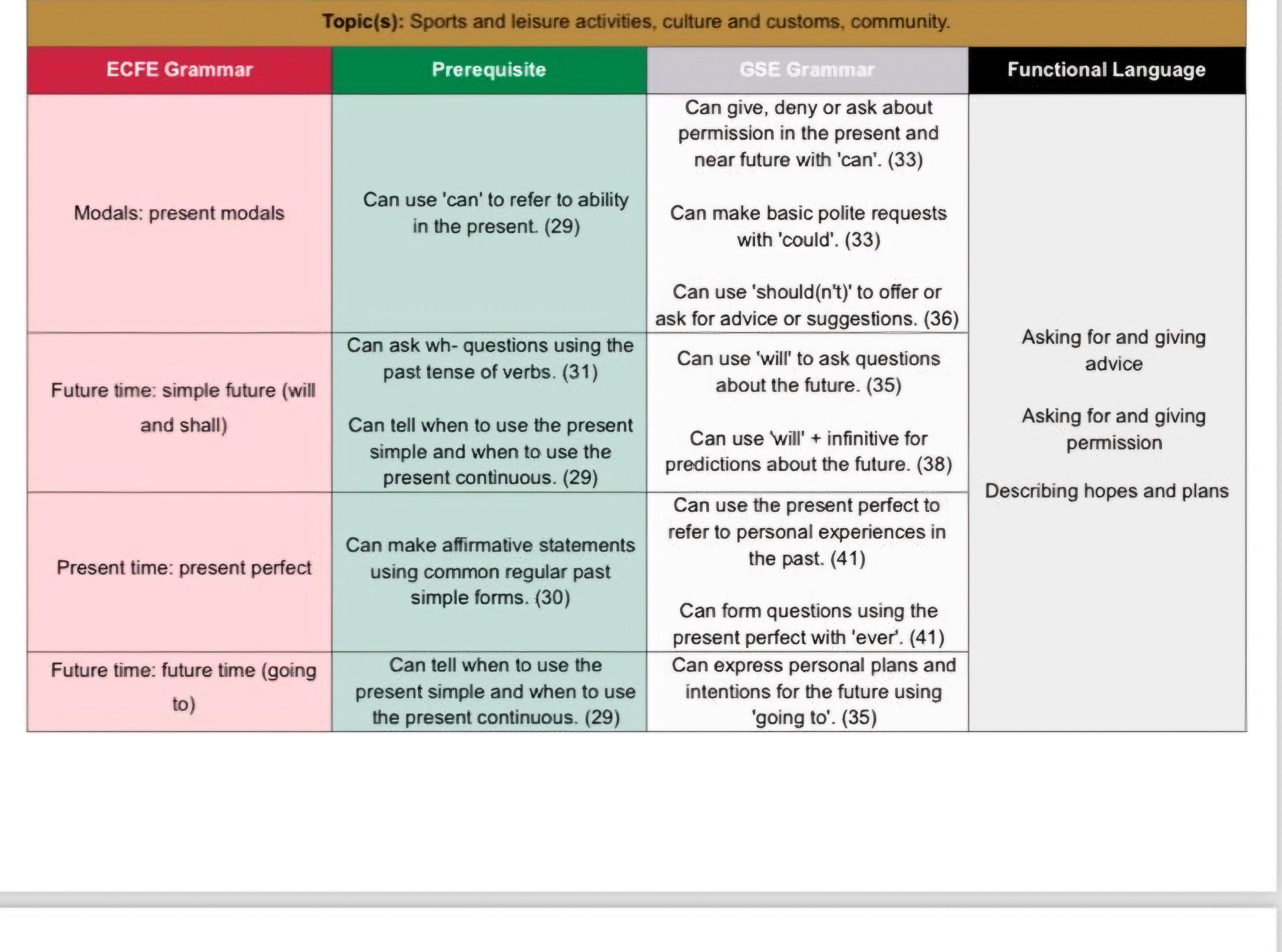What are the uses of different grammatical structures related to modals and tenses in the context of sports and leisure activities?

Understand the Problem
The question is asking about various grammatical structures and their uses in the context of sports, leisure activities, culture, customs, and community. It addresses modals and future, present, and past tenses, detailing how they can be applied in conversation and writing.
Answer
Modals express ability, requests, and advice; tenses show future plans and past experiences.
In sports and leisure contexts, modals like 'can' indicate ability or permission. 'Could' is used for polite requests, and 'should' for advice. Future tenses like 'will' and 'going to' describe future intentions or predictions. The present perfect tense describes past experiences.
Answer for screen readers
In sports and leisure contexts, modals like 'can' indicate ability or permission. 'Could' is used for polite requests, and 'should' for advice. Future tenses like 'will' and 'going to' describe future intentions or predictions. The present perfect tense describes past experiences.
More Information
Modals and tenses provide structure and nuance in communication, making intentions and abilities clear. Understanding their use enhances clarity in both spoken and written communication.
Tips
A common mistake is using 'can' instead of 'could' for polite requests, or mixing up 'will' and 'going to' for future plans.
Sources
- Auxiliary and Modal Verbs - English Grammar And Usage - Fiveable - fiveable.me
- Modal Verbs: Learn The Definition And Practice In Daily Life - Global Exam Blog - global-exam.com
- Modal verbs 2 – tips and activities | Article - Onestopenglish - onestopenglish.com
AI-generated content may contain errors. Please verify critical information